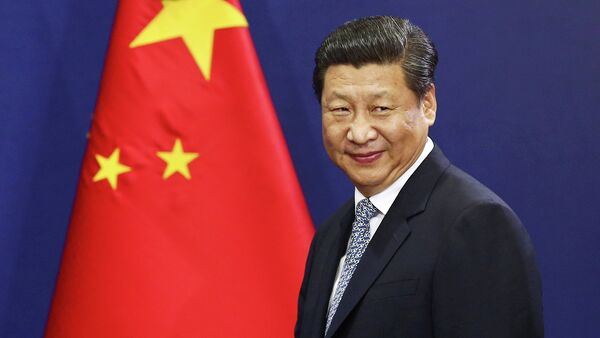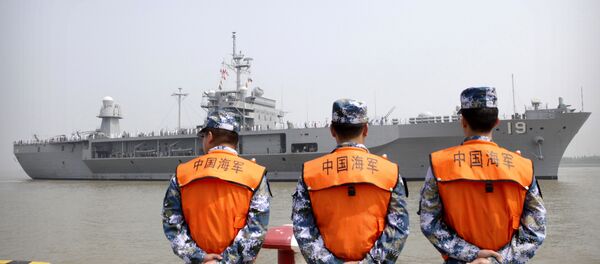The Chinese media outlet People's Daily (Renmin Ribao) has recently called attention to the fact that the new US administration has exerted considerable pressure on Latin American countries. It cited Trump's decision to impose a new 20% tax on imports from Mexico to pay for the wall on the US-Mexican border. He also promised to remove US manufactures from the country.
At the same time the media outlet highlighted that Mexico has recently signed a contract to build cars for Chinese state-owned firm JAC adding that the first automobiles are scheduled to be released in the second half of 2017.
According the Russian scholar this article sends a strong signal to Washington: China does not intended to remain aloof from the ongoing changes in Latin America, moreover, it is going to use them.
"Most likely China will take advantage of this opportunity," Martynov told Sputnik, adding that China has already adopted a well thought out economic policy towards the region.
"However, today the concept of 'backyard' is no longer relevant. The Latin American states are demonstrating more economic and, most notably, political independence even in comparison with developed countries," he said.
The Russian academic remarked that this "motion is mutual": it is not only Beijing who takes steps toward Latin America, but also the region that is opening to China's investments.
Furthermore, according to the academic China's huge demand for Latin America's traditional commodities allowed the latter to overcome the 2008 financial crisis. For decades Mexico has relied primarily on the US' market; as a result, however, Mexico's lack of business diversification backfired on the country in 2008.
It appears that Mexico has learnt this lesson.
In 2011 Chile, Colombia and Mexico established a trade bloc, dubbed the Pacific Alliance, which was later joined by Peru.
Trump's withdrawal from the Trans-Pacific Partnership (TPP) has dealt a blow to the Pacific Alliance's plans to work within the TPP's framework and at the same times opened the door for the Sino-Latin American rapprochement.
According to Arapova the countries of the region are interested in further economic integration with China and ASEAN nations. She pointed out that Peru has inked a number of bilateral and multi-lateral deals on free trade with the region's partners.
She assumed that Peru could soon announce the launch of negotiations with ASEAN states, for example, Vietnam and Indonesia. Arapova noted that Lima has already established close strategic ties with Beijing.
For his part, Cheng Fengying, an expert from Global Economy Center in China Institute of Contemporary International Relations (CICIR), believes that while Mexico's shift to China creates new opportunities for the two parties, both countries are likely to face new challenges.
"Opportunities always coexist with challenges," Cheng told Sputnik, "Mexico is 'doomed' to pay more attention to emerging markets in Asia and Latin America. In the present situation, countries should 'stick together to keep each other warm.'"
Likewise, for China the current state of affairs opens a window of opportunity and at the same time creates challenges, he said.
"For example, an ambiguity of the US policy toward China complicates macroeconomic policy and policy on foreign investment," the expert explained.
"But the key point is that countries should pursue their own strategic and development interests in the first place. The so-called emerging markets will be able to meet complex international challenges if their own internal situation is stable," he said, adding that it is especially important in the light of Washington "saying one thing and doing another."
Speaking to Sputnik Mundo in late January 2017 Peruvian economist Daniel Carpio agreed that Trump's political maneuvers may accelerate Sino-Latin American rapprochement.
"We have signed a free trade agreement with the US which brings us about half a billion dollars. With the TPP we were looking for new markets, primarily in Asia," Carpio said, adding that following the US exiting the TPP, Latin America is likely to embrace China as its trade partner.
Never miss a story again — sign up to our Telegram channel and we'll keep you up to speed!





